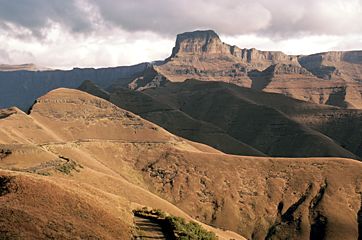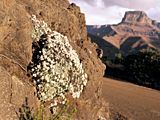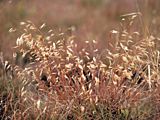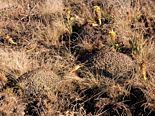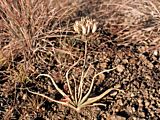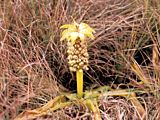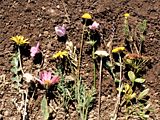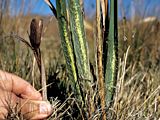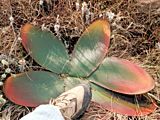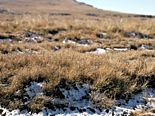Drakensberg Mountains (South Africa)
Situated in the southern subtropical zone, the Drakenberg escarpment reaches 3150 m above sea level. A climatic upper treeline does not exist because of regular fires and because of the steep cliffs. However, the plateau vegetation at the very top (> 3000 m) resembles all feature of alpine plant life. Low stature grass heath, cushion plants, rosette forbs. Winters are cold with ice and snow, summers are warm, with frequent storms in the raining season. The examples are from Mt. Sentinel, Royal Natal National Park.
2 -
Cushions of
Helichrysum sp.
(Asteraceae) on "safe" sites which cannot be reached by fire (2700 m).
3 -
Instead of montane forests, there are montane grasslands,
Monocymbium cerciformis
(Poaceae) is an important species (2600 m).
11 -
Species rich alpine grassland with first late season snow (3050 m). Dead leaf ends
similar to alpine grassland in the
Alps
or
New Zealand.
